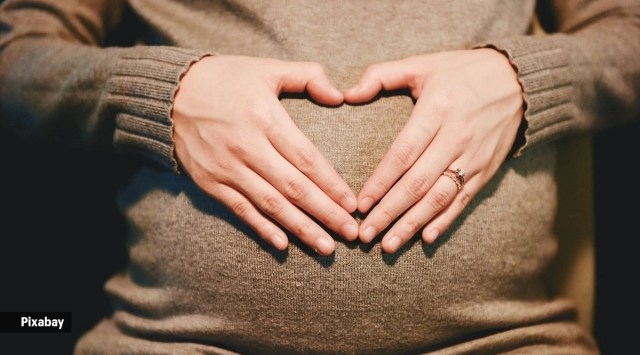📣 For more lifestyle news, click here to join our WhatsApp Channel and also follow us on Instagram
What is strep B test done in expectant mothers?
The test is typically conducted between the 35th and 37th weeks of gestation
 Know all about CDC-recommended strep B test (Source: Pixabay)
Know all about CDC-recommended strep B test (Source: Pixabay)Although vaginal bacteria are generally harmless in adults, specific bacteria can pose a threat to newborns during childbirth. To address this concern, a set of tests known as the Group B Streptococcus (GBS) test is recommended. Commonly known as the strep B test, it is a medical screening done during pregnancy to identify the presence of Group B Streptococcus bacteria in the vaginal and rectal areas of expectant mothers, experts explained.
But what is it? And why do we test for it?
According to childbirth educator Bharti Goel, GBS is a normal bacteria found in many of our intestines, rectum, and vagina and does not harm us. “But during pregnancy, this can cause issues during labour and birth if it is transmitted to baby (whose immune system is not as developed) and has a risk (1-2 per cent) of making them very sick,” said Goel.
The test is typically conducted between the 35th and 37th weeks of gestation. Explaining the process, Goel said that the doctor takes a swab from the vagina down the perineum to the rectum. It is then sent to the lab for analysis.
“Positive results indicate the need for antibiotic treatment during labour to prevent transmission of the bacteria to the newborn. This practice has significantly reduced the occurrence of neonatal infections caused by GBS. Negative test results suggest a lower risk of transmission, though healthcare providers might still administer antibiotics if the mother’s status is unknown during labour,” said Dr Surabhi Siddhartha, consultant obstetrician, and gynaecologist, Motherhood Hospital, Kharghar.
Experts said that the strep B test plays a critical role in ensuring the health and safety of both mothers and their newborns. “This is why, it is recommended testing for it at 35-37 weeks to see if you may need antibiotics treatment during labour to decrease this risk of transmission to baby,” Goel mentioned.
View this post on Instagram
Goel said that treatment for GBS-positive women during labour is administering penicillin every four hours.
📣 For more lifestyle news, follow us on Instagram | Twitter | Facebook and don’t miss out on the latest updates!
📣 For more lifestyle news, click here to join our WhatsApp Channel and also follow us on Instagram





- 01
- 02
- 03
- 04
- 05






















